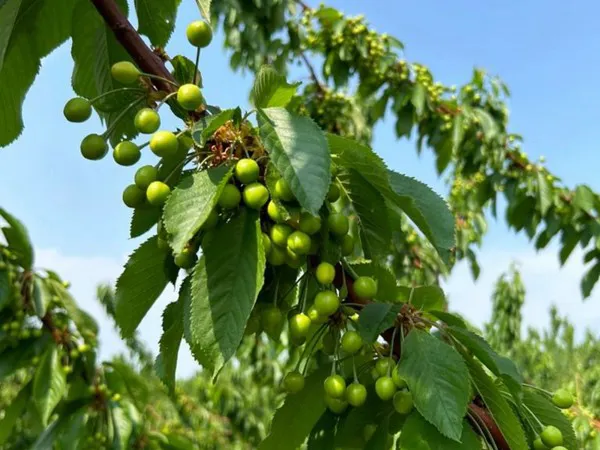“This year, it felt like we moved from winter into summer without any spring at all – during and since blossom we experienced unseasonably warm weather,” says Richard Isaacs with Global Fruit in British Columbia. “Things are moving quickly now.”
“We are happy to report that we are seeing a good crop overall, with promotable volumes from mid-July until late August, and supply hopefully extending into early September once again.” However, some regions/orchards/varieties do not have a great fruit set this year, so it certainly won’t be a record crop across BC. Heat stress when the pollen are forming can lead to pollen sterility, or failure of the pollen to release from the anthers, both of which would lead to reduced fruit set. In addition, pollen can dry out quickly when a flower opens in very hot conditions. It looks like it just wasn’t possible for bees to visit all of the flowers in the limited time that the flowers were viable. Under normal circumstances, a flower can easily remain viable for four or five days, but this year the opportunity for pollination was much shorter.

Having said all that, it is important to know that this was not the situation in all orchards. The warm weather in BC is bringing the start of the season earlier in the calendar, just as it is in Washington. “In our previous Crop Update we reported seeing the first flowers opening two weeks later than 2022, but today it looks like we may only be five days later starting.” If the recent hot conditions continue for the next few weeks, start dates could even be similar to last year, but the normal ‘timing spread’ is expected between Washington, and the Okanagan and Creston valleys here in BC. All cherries across all regions are moving earlier in unison as these hot conditions are affecting the whole of the Pacific Northwest.
 For more information:
For more information:
Richard Isaacs
Global Fruit
Tel: +1 (250) 254 1241
richard@globalfruit.org
www.globalfruit.org
